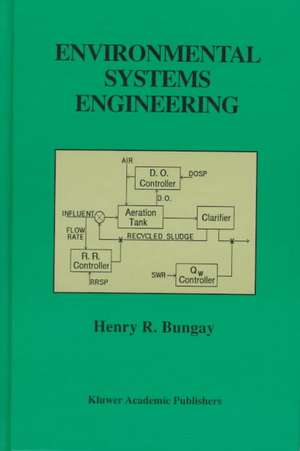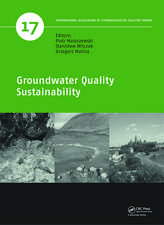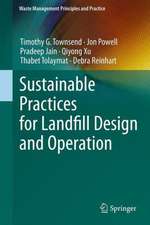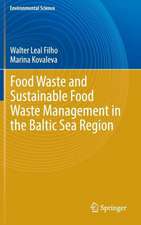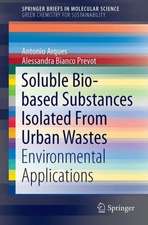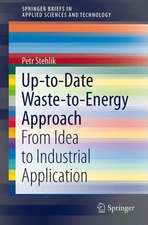Environmental Systems Engineering
Autor Henry R. Bungayen Limba Engleză Hardback – 31 oct 1997
This book covers: expert systems, fuzzy logic, networks, process dynamics, control and statistical approaches to systems analysis. Computer simulation, mathematical models, and newer methods that apply artificial intelligence and neural networks to environmental problems are emphasized.
Each book topic is supported by an interactive web site featuring computer graphics, teaching games and navigational aids. Topics are developed through the use of computer exercises using practical problems as examples.
| Toate formatele și edițiile | Preț | Express |
|---|---|---|
| Paperback (1) | 637.13 lei 43-57 zile | |
| Springer Us – 5 noi 2012 | 637.13 lei 43-57 zile | |
| Hardback (1) | 643.34 lei 43-57 zile | |
| Springer Us – 31 oct 1997 | 643.34 lei 43-57 zile |
Preț: 643.34 lei
Preț vechi: 756.86 lei
-15% Nou
Puncte Express: 965
Preț estimativ în valută:
123.11€ • 127.76$ • 102.90£
123.11€ • 127.76$ • 102.90£
Carte tipărită la comandă
Livrare economică 17-31 martie
Preluare comenzi: 021 569.72.76
Specificații
ISBN-13: 9780792380498
ISBN-10: 0792380495
Pagini: 209
Ilustrații: XIII, 209 p.
Dimensiuni: 155 x 235 x 14 mm
Greutate: 0.5 kg
Ediția:1998
Editura: Springer Us
Colecția Springer
Locul publicării:New York, NY, United States
ISBN-10: 0792380495
Pagini: 209
Ilustrații: XIII, 209 p.
Dimensiuni: 155 x 235 x 14 mm
Greutate: 0.5 kg
Ediția:1998
Editura: Springer Us
Colecția Springer
Locul publicării:New York, NY, United States
Public țintă
ResearchCuprins
1. Introduction.- Systems engineering.- Biological concepts.- Programming for systems applications.- Old reliable languages.- Newer languages.- Equation solvers.- 2. SIMULATION.- SIMBAS, SIMulation in BASic.- Guide for writing simbas programs.- Dissolved oxygen sag curve.- Tricks with simbas.- 3. Process Dynamics.- Dynamic analysis.- Forcing functions.- Controllers.- Distance-velocity lag.- Templates for graphical design or analysis.- Stability.- Linearity.- Open- and closed-loop responses.- Bode diagrams in matlab.- Feedforward control.- Programs for dynamic analysis.- 4. Databases.- Database management.- Spreadsheets.- Electronic databases.- 5. COMPUTER MODELS.- Philosophy.- Curve fitting.- Growth-rate relationships.- Clemson model of activated sludge.- Partial differential equations.- Plume models for air pollution.- Estuarine contaminant simulator.- Fugacity approach.- Observers.- Cellular automata models.- Conclusions.- 6. Hydraulic Networks.- Network principles.- Pipe networks.- More complicated networks.- Software for processes.- 7. Neural Networks.- How many boxes and hidden layers?.- Neural algorithms.- Commercial shells for neural networks.- Discussion.- Bioprocess monitoring and control.- Public domain programs.- 8. Expert Systems.- Common expert systems.- Advanced features of expert systems.- Commercial programs for expert systems.- Applications.- 9. Fuzzy Logic.- Fuzzy operations.- Fuzzy truth.- Fuzzy controllers.- Fuzzy approaches to state estimation.- A little more theory.- 10. Statistical Approaches.- Definitions.- Distributions.- Process performance.- Statistical features of spreadsheets.- Time series analysis.- Extreme value problems.- Independent variables.- Optimization.- Appendices A. Running Dos Programs.- B. INTRODUCTION TO A SPREADSHEET.- C. MATLAB PIPE NETWORK PROGRAM.
